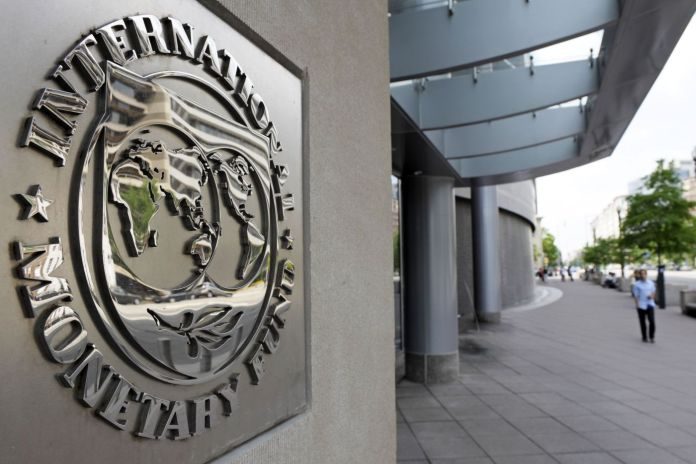PORT-AU-PRINCE, Haiti – Haiti is facing a grave political, economic, and social crisis. Repeated protests and lock-downs in the country since the summer of 2018 have led to recession and high inflation. Despite considerable efforts by officials at the central bank and ministry of finance, the economic and human costs of this political crisis have surged in recent months and are taking a heavy toll on an already poor and vulnerable population.
In the short term, the priorities are to restore macroeconomic stability, mobilize fiscal revenues, take steps to tackle corruption and start to build a better social safety net, including developing a new pilot program of cash transfers to the poor.
The government should provide the agencies responsible for combating corruption with the legal and financial means necessary to fulfill their mandate. Elected officials, senior public servants, and judges need to comply with the asset reporting obligations required by law.
An International Monetary Fund (IMF) team, led by Nicole Laframboise, met with Haitian authorities in Port au Prince and Washington to conduct discussions on the Article IV Consultation. Upon conclusion of the meetings, Laframboise issued the following statement:
“We would like to extend our sincere thanks to the Haitian authorities, government officials and representatives of the private sector and civil society for their time and assistance over the past two weeks. They made it possible to undertake this consultation, in spite of a very challenging situation in Haiti.
“The political, economic, and social crisis confronting Haiti is without precedent. As a consequence of repeated lock-downs in the country in November 2018 and February, June, and September 2019, growth for the 2019 fiscal year is expected to be negative, at about -1.2 percent, while inflation rose to above 20 percent at end-September. This has worsened poverty and insecurity and deprived the government of the means to make productive investments and support activity.
“The ad referendum program agreed with Fund staff under the Extended Credit Facility (ECF) in March was shelved because of the absence of a government ratified by parliament and able to commit the country to an economic reform program. This also led to the suspension of most external financial assistance.
“The staff outlook assumes a stabilization of the political situation but no fundamental political or economic reforms which are unrealistic to assume at this juncture. Over the course of 2020, this would permit output to stabilize before a slight resumption of growth to around 0.9 percent in 2021. Under this scenario of low growth and external assistance, inflation is expected to remain close to 20 percent over the next two years. Likewise, potential growth is estimated at 1.5 percent per year over the longer term.
“It is important to note that a continuation of the current political crisis would have devastating consequences for the country over the longer-term owing to the likely losses of physical and human capital.
On the other hand, a rapid resolution to the crisis could lead to strong rebound inactivity. The appointment of a government committed to reforming the economy and the resumption of support from the international community would permit a loosening of budgetary constraints and an increase in public spending—investment in particular. This would reduce the need for financing from the central bank, thereby helping to lower inflation and boost growth in the short and medium-term.
“The immediate priority should be to stabilize the economy. In the absence of a formal budget submission to parliament, it is critical that the government prepare and publish a budget framework for 2020 as soon as possible. This notional budget should include measures to boost domestic revenues by strengthening tax administration and collection and reducing tax exemptions and take steps to rationalize non-priority spending.
We commend the authorities for adhering to the economic governance agreement between the central bank (BRH) and the Ministry of Economy and Finance which contributed to stabilizing inflation and the exchange rate over the summer. Renewal of this agreement would be key to again limiting monetary financing of the budget deficit, a key source of inflation.
“Staff commend the authorities for their efforts to finalize the draft of the National Plan for Social Protection and Social Progress (PNPPS) and urge the Council of Ministers to formally adopt this policy. The PNPPS should reduce the fragmentation and overlap of existing programs which at present lead to inefficiencies and hinder their effectiveness. IMF staff recommend establishing, within the PNPPS framework, a limited number of cash transfer programs for vulnerable groups under the auspices of the Ministry of Social Affairs and Labor (MAST) and to launch a pilot program as soon as possible.
“Combating corruption is another short-term priority. The Anti-Corruption Unit (L’Unité de Lutte Contre la Corruption, or ULCC) should be granted the legal and financial means to enable it to carry out its mandate in full. The government should set up the Steering Committee conceived under the 2009 National Anti‑Corruption Strategy, importantly with independent representatives from civil society, and it should participate in the drafting of the new anti-corruption strategy. In addition, the asset reporting obligations of elected officials, senior public servants, and judges as stipulated in legislation (February 12, 2008) must be enforced. Finally, as part of key anti‑money laundering measures to support anti-corruption efforts, banks should meet their obligations to “verify and know their customers”, particularly politically exposed persons.
“We sincerely hope that political stability will return and allow the government to build a consensus with key stakeholders in the country on a package of more extensive reforms in the areas of public finance management, governance, the structure and functioning of the energy sector, and the social safety net.
Haiti has the potential for much stronger and more inclusive growth. The IMF continues to provide policy advice and technical assistance, and stands ready to help with more intensive support when political conditions permit.”





